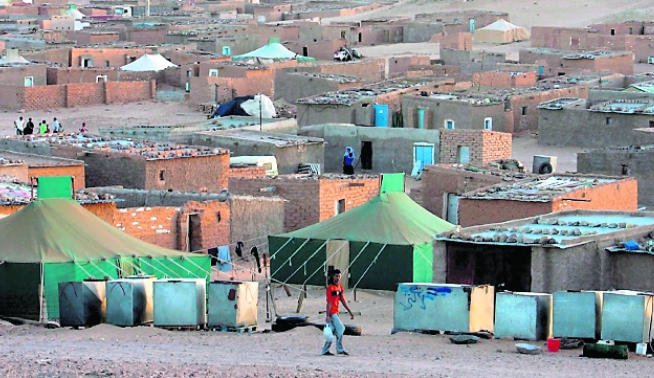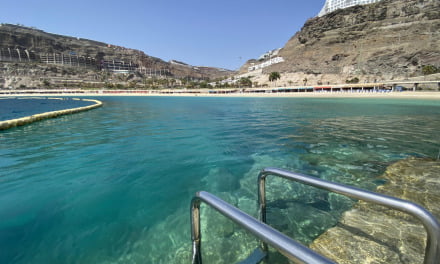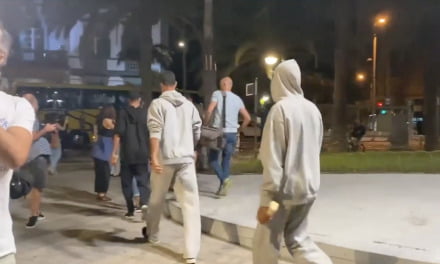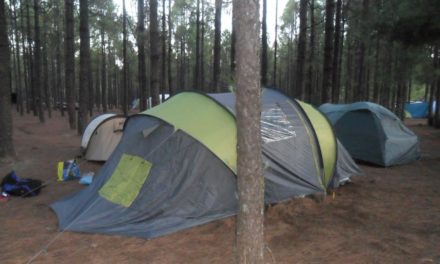 The end of February 2018 marked the 42nd anniversary of resistance, initiated by the Sahrawi Arab Democratic Republic (SADR), against Morocco’s occupation of Western Sahara, to this day a disputed territory with no universally recognised government. The Saharawi people and solidarity associations say they are closer than ever to the referendum promised to them nearly 30 years ago, particularly after a recent ruling from the EU Court of Justice on fishing rights and the position held by the African Union, on which both Morocco’s capital, Rabat, and the Sahawari government in exile, the Polisario, have much to say.
The end of February 2018 marked the 42nd anniversary of resistance, initiated by the Sahrawi Arab Democratic Republic (SADR), against Morocco’s occupation of Western Sahara, to this day a disputed territory with no universally recognised government. The Saharawi people and solidarity associations say they are closer than ever to the referendum promised to them nearly 30 years ago, particularly after a recent ruling from the EU Court of Justice on fishing rights and the position held by the African Union, on which both Morocco’s capital, Rabat, and the Sahawari government in exile, the Polisario, have much to say.
The proclamation of the Sahrawi Arab Democratic Republic (SADR) was an event that marked the beginning of the resistance by the Polisario Front against the occupation of Morocco after Spain departed its former colony. February 27, 1976 in Bir Lehlu independence for Western Sahara was proclaimed and, at the same time, hostilities began between Rabat and the Polisario, leading neighbouring Algeria to open refugee camps, specifically in the area of Tindouf, which to this day hold hundreds of thousands of forgotten exiles forced to leave their homeland due to their struggle for self-determination.
 After more than four decades of resistance, the president of the State Coordination of Associations in Charity with the Sahara, José Taboada, says he is pleased with the latest resolution of the European Union Court of Justice regarding the fisheries agreement between the EU and Morocco and with the position that the African Union has taken in the conflict. “We see the referendum in the Sahara as being closer than ever, everything we have been saying for 40 years is being fulfilled and it is time for justice to be done for the Saharawi people, meanwhile we will continue supporting the cause and denouncing the situation in the occupied areas and in the camps”.
After more than four decades of resistance, the president of the State Coordination of Associations in Charity with the Sahara, José Taboada, says he is pleased with the latest resolution of the European Union Court of Justice regarding the fisheries agreement between the EU and Morocco and with the position that the African Union has taken in the conflict. “We see the referendum in the Sahara as being closer than ever, everything we have been saying for 40 years is being fulfilled and it is time for justice to be done for the Saharawi people, meanwhile we will continue supporting the cause and denouncing the situation in the occupied areas and in the camps”.
Spain must play an essential role in the current situation, according to José Taboada. In his opinion, “the Spanish government must do something to help the peaceful resolution of the conflict, Spain was the most important part at the beginning of it and must also be at the end and defend the interests of the [Spanish] State and the Canary Islands because with an independent Sahara there will be very important cooperation & ties.”
 Taboada participated took part in an event organized by the Cabildo de Gran Canaria to commemorate the 42 years since the proclamation of independence by the SADR, together with Gran Canaria’s Minister for Institutional Cooperation and International Solidarity, Carmelo Ramírez, and the President of the International Association of Jurists for the Sahara, Felipe Briones.
Taboada participated took part in an event organized by the Cabildo de Gran Canaria to commemorate the 42 years since the proclamation of independence by the SADR, together with Gran Canaria’s Minister for Institutional Cooperation and International Solidarity, Carmelo Ramírez, and the President of the International Association of Jurists for the Sahara, Felipe Briones.
The president of the State Coordination of Solidarity Associations believes that the African Union is now taking centre stage in the solution, after the Morocco this January rejoined the organisation made up of African nations, 33 years after having left in protest, following the unions decision to recognise Western Saharan sovereignty back in 1984. Taboada says the union now “is asking Rabat to negotiate a solution with the SADR, both of whom are sitting within the African Union and so it is a contradiction that they do not speak, the status quo of Western Sahara can not be maintained for long and Morocco is in a moment of great flux”.
For his part, Felipe Briones stressed that national and international judicial pronouncements in recent years have given reason, from various fronts, to the arguments of the Saharawi people. Without going any further, the National Court invalidated the Madrid Agreement of 1975 and declares that, for judicial and criminal purposes, the principle that must be applied in the Sahara is one of territoriality and not of universal justice. This, he says, amounts to declaring Spanish jurisprudence holding competency in any crime that is committed in the Sahara, “so for these reasons [it could still be argued to be] part of Spanish territory,” warns the lawyer.
Briones said that the current judicial rulings also give the Saharawi people sovereignty over the natural resources of the territory. The anti-corruption prosecutor from Alicante backs up his argument giving the example of a recent ruling by the Supreme Court of South Africa that prevented the export of a shipment of phosphates from Western Sahara to New Zealand because it considers that this material belongs to the Saharawi people and not to the state company of Moroccan phosphates.
“What is being seen in this conflict is that the courts are considering the legitimacy internal to International Law on the Sahara,” explained Briones.
Source: La Provincia










